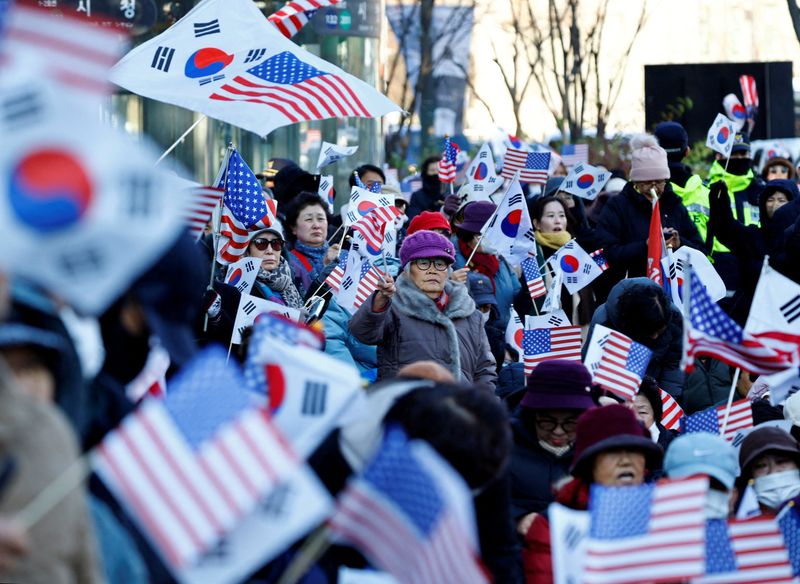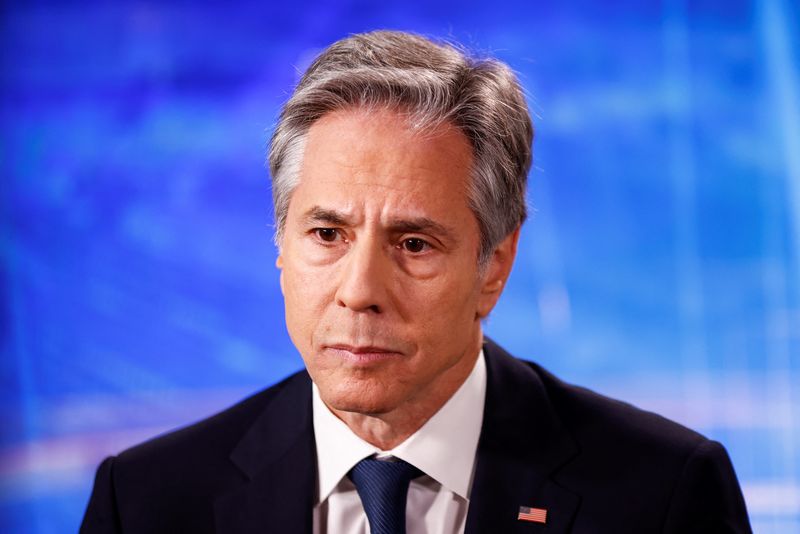By Humeyra Pamuk
BRUSSELS (Reuters) - The United States was not aware that South Korea's president intended to declare martial law, U.S. Secretary of State Antony Blinken told Reuters on Wednesday, adding that he anticipated speaking to his South Korean counterpart in the coming days.
President Yoon Suk Yeol declared martial law on Tuesday night to thwart "anti-state forces" among his domestic political opponents, but rescinded the decision hours later after lawmakers defied him.
Speaking in an interview with Reuters in Brussels on the sidelines of a meeting of NATO foreign ministers, Blinken said it was vital that the process from now on play out peacefully and according to the rule of law in South Korea, a key U.S. ally.
"South Korean democracy is one of the most powerful stories anywhere in the world. It's very important that any disputes, differences, political differences, be resolved peacefully and pursuant to the rule of law. That's what we're seeing now. That's what's so important to sustain," Blinken said.
The United States, which has around 28,500 U.S. troops stationed in South Korea, had not been informed about Yoon's decision beforehand, he said.
"No, that's correct. We were not aware," he said, while objecting to any suggestion that this may have been an intelligence gap by Washington.
"We are certainly not routinely informed of every decision that any partner may be making anywhere around the world at any given time," he said.
President Joe Biden's national security adviser, Jake Sullivan, later told Washington's Center for Strategic and International Studies think tank the United States was not consulted in any way.
"We learned about this from the announcement on television, the same way the rest of the world did," he said. "It raised deep concern for us, this declaration of martial law."
He said the "rather dramatic announcement ... raised alarm bells everywhere, including here in Washington," but subsequent events had shown the "processes and procedures" of a functioning democracy work.
"South Korea's democracy is robust and resilient, and we're going to continue to speak out publicly and engage privately with South Korean counterparts to reinforce the importance of that continuing," Sullivan said.
Yoon's declaration created the most serious challenge to South Korea's democracy since the 1980s and was unanimously voted down by 190 lawmakers in the parliament. Protesters gathered outside parliament, and Yoon's own party urged him to lift the decree.

Blinken declined to say whether he thought the martial law decision was justified or not.
"I'm not going to get into the decisions that were made, political decisions that were made in South Korea," he said. "What's important now is to see this process play out peacefully and according to the constitution of the rule of law."
